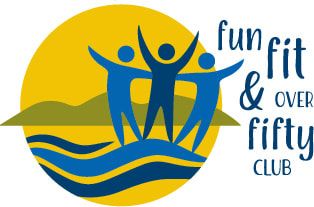FFOFC 12 Hiking Essentials
1. Map of the area
a. It is important that you know where you are starting, where you are going and how to read the map.
b. Most hikes only require a local trail map of the area.
2. Compass or GPS
A good compass can be invaluable with a good map in the event that you get lost on the trail.
3. Flashlight with extra batteries/bulb
A flashlight can be used if you are travelling on the trail and night falls. It can also serve as a signal device to rescuers.
4. Extra Food & Water
a. You never know when you might want an extra snack. You also may underestimate your ability to cover a given distance in a set amount of time. You may also find yourself in a situation where you need to stay overnight in the woods and will want extra food to tide you over.
b. You should always carry extra water for a trip. Few areas provide drinkable or “potable” water.
5.Extra clothing, including rain gear
a. The weather in many places can change suddenly. Be prepared for the weather by packing accordingly. Rain gear can be invaluable in Western Washington where the weather is subject to change suddenly.
b. Check the weather before the trip to determine specific clothing needs in order to be prepared.
6. Sun Protection
Sunglasses and sunscreen are not just for bright sunny days. Your skin can be affected by wind, and eyes by reflection from water and snow, even on cloudy days.
7. Pocketknife
Has uses both in a camp setting and in the event that the hiker needs to survive the night in the wild.
8. Fire starter
a. A candle or other fire starter can help to start a fire where it may be difficult to start a fire due to conditions.
b. Matches or a lighter in a waterproof container are useful if you are lost and must stay the night in the woods. These may also be used to start fires to warm individuals who have become cold due to weather conditions.
9. First aid kit
Injuries happen. A basic first aid kit should be able to patch small injuries, such as cuts, blisters, or scrapes.
10. Signal device
a. whistle, mirror - the whistle is much louder than your voice, and will not fatigue. Mirror is effective for signaling in line of sight situations.
b. Cell phone - an efficient way to communicate with party members or rescue when in a serviced area. Always have a back-up signal method in case your cell phone does not work.
11. Emergency Shelter
A Mylar space blanket is a an inexpensive, light weight, effective shelter. A light weight tarp will also work well.
12. Your knowledge, experience, and critical thinking - staying calm and reasoning things out during an emergency or adverse conditions can save your life.
Source document is in the documents section
a. It is important that you know where you are starting, where you are going and how to read the map.
b. Most hikes only require a local trail map of the area.
2. Compass or GPS
A good compass can be invaluable with a good map in the event that you get lost on the trail.
3. Flashlight with extra batteries/bulb
A flashlight can be used if you are travelling on the trail and night falls. It can also serve as a signal device to rescuers.
4. Extra Food & Water
a. You never know when you might want an extra snack. You also may underestimate your ability to cover a given distance in a set amount of time. You may also find yourself in a situation where you need to stay overnight in the woods and will want extra food to tide you over.
b. You should always carry extra water for a trip. Few areas provide drinkable or “potable” water.
5.Extra clothing, including rain gear
a. The weather in many places can change suddenly. Be prepared for the weather by packing accordingly. Rain gear can be invaluable in Western Washington where the weather is subject to change suddenly.
b. Check the weather before the trip to determine specific clothing needs in order to be prepared.
6. Sun Protection
Sunglasses and sunscreen are not just for bright sunny days. Your skin can be affected by wind, and eyes by reflection from water and snow, even on cloudy days.
7. Pocketknife
Has uses both in a camp setting and in the event that the hiker needs to survive the night in the wild.
8. Fire starter
a. A candle or other fire starter can help to start a fire where it may be difficult to start a fire due to conditions.
b. Matches or a lighter in a waterproof container are useful if you are lost and must stay the night in the woods. These may also be used to start fires to warm individuals who have become cold due to weather conditions.
9. First aid kit
Injuries happen. A basic first aid kit should be able to patch small injuries, such as cuts, blisters, or scrapes.
10. Signal device
a. whistle, mirror - the whistle is much louder than your voice, and will not fatigue. Mirror is effective for signaling in line of sight situations.
b. Cell phone - an efficient way to communicate with party members or rescue when in a serviced area. Always have a back-up signal method in case your cell phone does not work.
11. Emergency Shelter
A Mylar space blanket is a an inexpensive, light weight, effective shelter. A light weight tarp will also work well.
12. Your knowledge, experience, and critical thinking - staying calm and reasoning things out during an emergency or adverse conditions can save your life.
Source document is in the documents section
